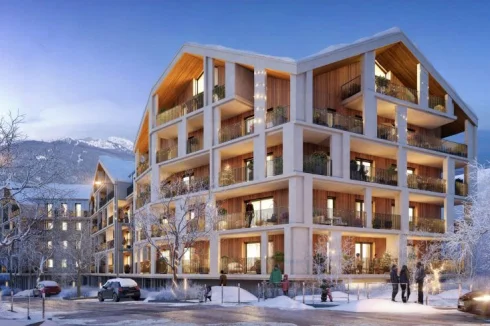The Legal Protection Against ‘Vices Cachés’
Friday 22 October 2021
Property buyers in France are afforded legal protection against hidden or latent defects, but just how does it operate?
What is a 'Vice Caché'?
A vice caché is a hidden or latent defect in a property (or equipment, tools, vehicle etc) that may be purchased.
Protection for buyers is enshrined in Article 1641 of the civil code, which states: 'Le vendeur est tenu de la garantie à raison des défauts cachés de la chose vendue qui la rendent impropre à l'usage auquel on la destine, ou qui diminuent tellement cet usage que l'acheteur ne l'aurait pas acquise, ou n'en aurait donné qu'un moindre prix, s'il les avait connus.'
In order for such a defect to be recognised in law, three main tests are therefore used:
- The defect is one that would not be apparent to the buyer;
- The problem must be sufficiently grave that it renders the property unsuitable for its proper use, or that it diminishes significantly this use, such that the buyer would not have purchased it, or purchased on the same terms, had they known about it;
- The defect must have been present prior to the sale.
The fact that it is a 'hidden' defect does not imply that the owner has deliberately withheld it from the buyer (as this would then be fraud), but a defect that is not one that the owner would necessarily have any knowledge.
There is a huge amount of case law concerning the application and interpretation of these principles, some of which we have covered, such as Seller did not Disclose Dry Rot.
Although all cases are considered on their merits, the courts have determined that certain defects are more self-evidently 'hidden' defects, such as defective foundations, termite infestation, flooding risk, an unstable structure, provided, as always, that they have not otherwise been brought to the attention of the buyer.
If any of these problems have been identified during the statutory surveys (diagnostics immobiliers) then you will have been deemed to have been informed about them.
In recent years, as a result of the introduction of a range of these surveys, many potential hidden defects are brought to light as part of the conveyancing process.
Nevertheless, the surveys are not by any means a comprehensive building survey so should not be used as a definitive statement on all aspects of the condition of the property.
If you are selling French property you also need to ensure you disclose potential problems you are aware of to the buyer. We are aware of several cases where international owners have sold, to be later faced with a legal action against them for vices cachés and there is a regular flow of cases in the French courts.
Time Limits
There is a time limit of two years to bring a legal action.
Clearly, by this point you will probably need to take professional advice, perhaps with the assistance of a building surveyor and/or an avocat.
Remedies
If you are unable to reach an amiable settlement with the seller, then the matter will need to be heard in a Tribunal de Grande Instance.
If you are successful with your claim, the two solutions are:
- Annulment of the sale and reimbursement of costs
- Damages to repair the defect or to reflect the lower value of the property
It is also possible you may be entitled to both annulment and damages. This might occur, for instance, where the court judged that the seller acted in bad faith.
If the defect is such that even the seller might not have known about it, then a claim is less likely to be successful; the principle of ‘caveat emptor’ (buyer beware) applies as much in French law as it does elsewhere.
That said, the seller is obliged to disclose all important information about the property that might affect the decision of the buyer, or the price they paid for the property. If they do not do so, then it is possible for a court of law to offer a remedy.
Sale and Purchase Contracts
Notaires sometimes seek to limit the use of the vice caché protection by a standard exclusion clause the in the sale contract.
In practice, whether a court of law would uphold this clause would depend on the circumstances of the case. If the court considered that the buyer had been deliberately misled by the seller, then they could annul the clause.
Indeed, this has happened in a number of important court cases, although in other legal decisions the clause has been upheld. It all depends on the circumstances, notably whether the seller acted in good or bad faith.
Our advice to all buyers is that you should press for the removal of this clause in the sale contract. The seller may well object to you doing so, but if they do, their motives need to be questioned.
You should be hesitant about accepting to buy 'en l’état' (as seen) unless you fully understand what you are buying.
Ensure also that any important clause on the condition of the property that may have been included in the sale contract is transferred over into the deed of sale.
There are particular guarantees on a house constructed within the last ten years, and there is additional protection if the seller is a property professional - property dealer, property developer or builder - as their own disclosure obligations are more prescribed.
Thank you for showing an interest in our News section.
Our News section is no longer being published although our catalogue of articles remains in place.
If you found our News useful, please have a look at France Insider, our subscription based News service with in-depth analysis, or our authoritative Guides to France.
If you require advice and assistance with the purchase of French property and moving to France, then take a look at the France Insider Property Clinic.





